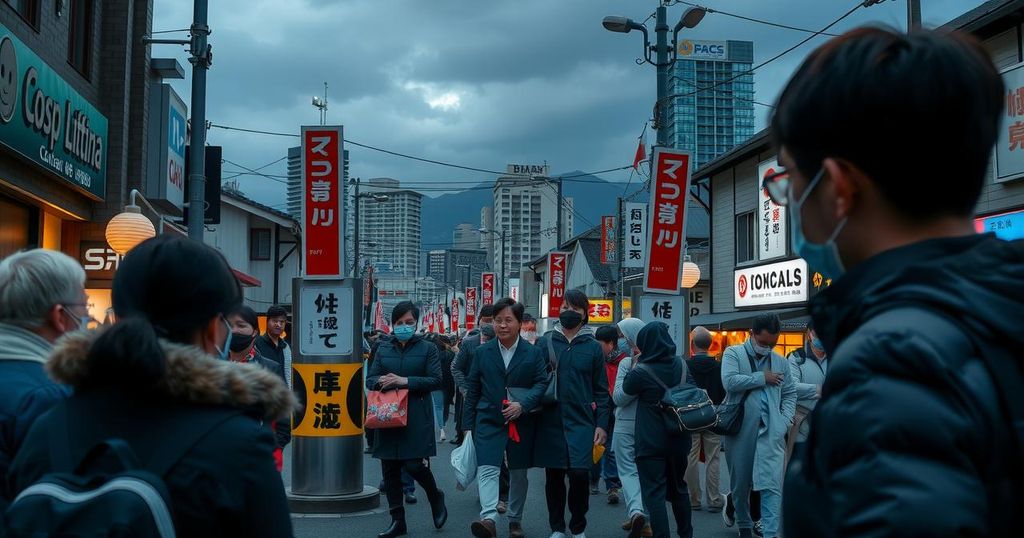Ahead of Japan’s October 27 snap election, Prime Minister Shigeru Ishiba seeks to fortify public confidence amid a significant decline in favorability for his ruling party, the Liberal Democratic Party (LDP). A recent Pew Research Center survey reveals only 30% of respondents support the LDP, with 68% expressing unfavorable views. Broader discontent is noted, with 56% of voters feeling no connection to any political party, indicating a challenging climate for the upcoming election.
Japan’s political landscape faces significant challenges ahead of the snap election scheduled for October 27, 2024. Prime Minister Shigeru Ishiba has called for this election to restore public confidence in his administration, which is governed by the Liberal Democratic Party (LDP). Despite its long historical dominance, the LDP is currently grappling with declining favorability amidst a backdrop of scandals, particularly a slush fund scandal that has led to indictments of various party lawmakers. According to a survey conducted by the Pew Research Center from January to March 2024 with 1,003 participants, only 30% of respondents expressed favorable opinions towards the LDP, while 68% viewed the party unfavorably—the lowest approval rating recorded in the last seven years. This discontent extends to other political factions with only 29% favoring the main opposition party, the Constitutional Democratic Party (CDP). A significant portion of the electorate, 56%, identifies with no political party, reflecting a growing disenchantment with the current political system. Voter turnout in Japan remains low despite automatic registration, with approximately one-third of the population expressing satisfaction with the state of democracy. Notably, supporters of the LDP are more inclined to express contentment with the democratic process compared to their opponents, indicating a partisan divide in political satisfaction. This context leads into the impending snap election, which will be pivotal for the future of Japanese democracy and governance.
The article discusses the current political situation in Japan as the country approaches a snap election. The recent calling of this election by Prime Minister Shigeru Ishiba aims to obtain a public mandate amid declining popularity for the ruling Liberal Democratic Party (LDP), marking a notable shift in the political climate after decades of near-continuous party governance since its inception in 1955. The LDP has faced a series of political scandals, resulting in diminished favorability ratings among the electorate. The Pew Research Center’s analysis provides insight into public sentiment towards democracy and political parties within Japan, highlighting increasing dissatisfaction and lack of strong party affiliation among citizens, which are critical elements as the election draws closer.
In summary, the upcoming snap election poses significant implications for Japan’s democratic governance as public sentiment towards the ruling party, the LDP, has sharply declined. Amidst internal scandals and a noticeable lack of party affiliation among voters, Japan’s political landscape is increasingly characterized by disillusionment. With low voter satisfaction levels, the election serves as a crucial test for the Ishiba administration and the future direction of Japanese politics.
Original Source: www.pewresearch.org






